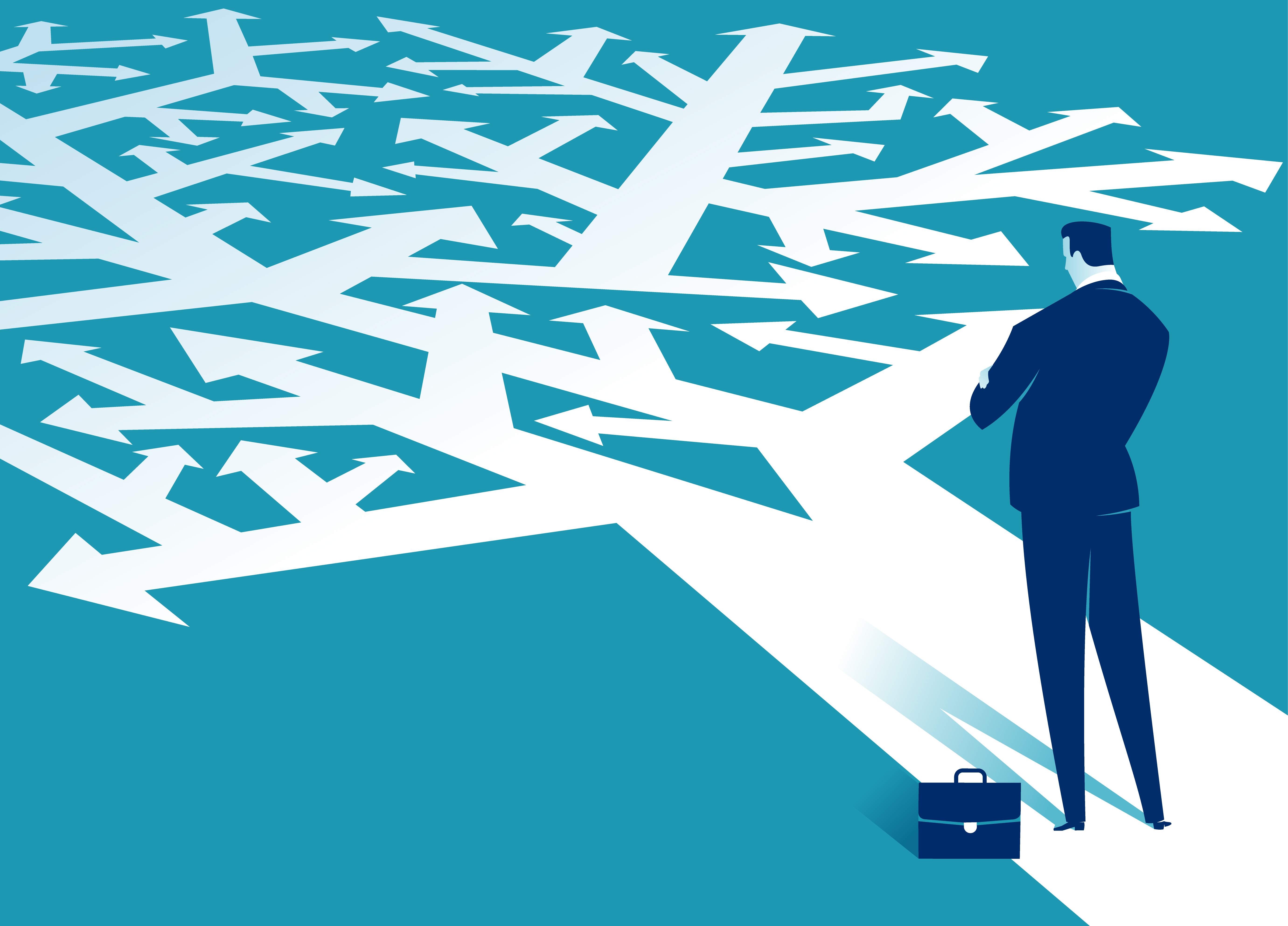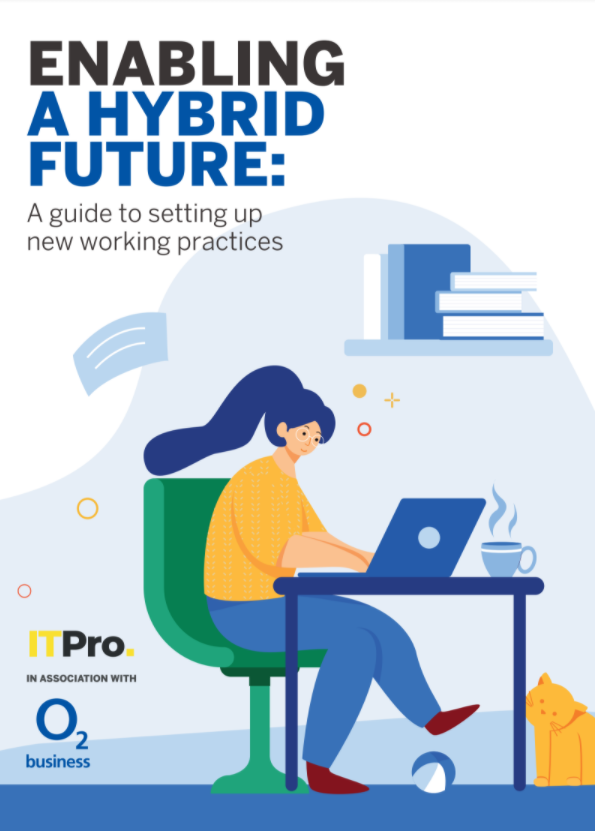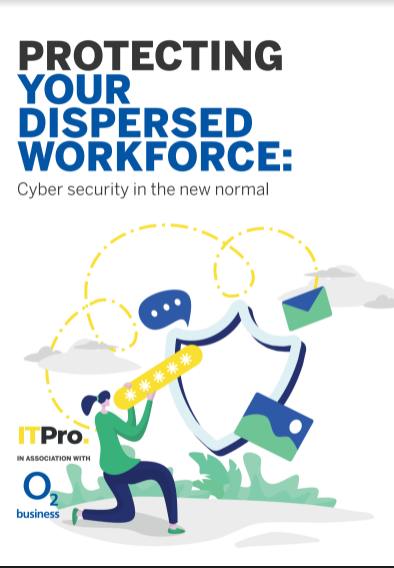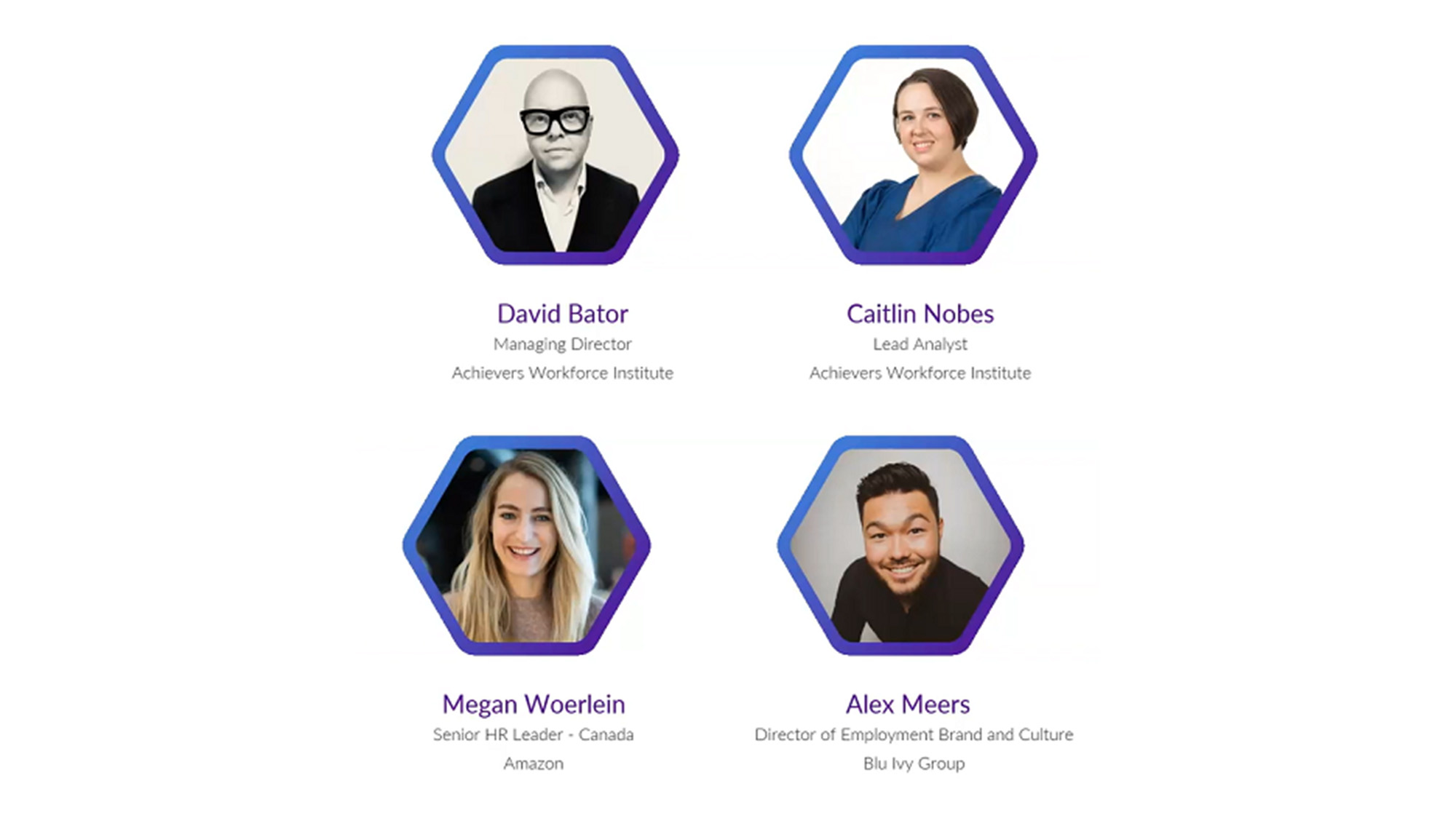Navigating uncertainty for your organisation
Increased flexibility and agility will be the key to post-pandemic economic recovery and the future of business

The only thing you can be certain of is uncertainty, or so the old adage goes, and in 2020 that has been doubly so. The emergence of COVID-19 at the end of 2019 and the rolling global pandemic that followed has been massively disruptive and changed how we live, work and do business potentially forever.
But even without throwing a new zoonotic disease in the mix, 2020 was already set to be a year of uncertainty. The end of the Brexit transition period and the US presidential elections were already firmly on the horizon as potential disruptors to both life and business, although not quite in the all-consuming way of COVID-19. The point, however, is that once this particular crisis abates – as it hopefully will next year – there will inevitably be further periods of instability and uncertainty in the future, whether foreseen or unforeseen, that businesses will have to adapt to as well.
Flexibility, then, has become something not just for forward-thinking companies to dabble in but a core element of any successful business strategy.
Out of office
One of the key features of 2020 was the exodus of businesses from their office premises, with both the immediate and long-lasting effect of this being that while most people are still working, few are ‘going to work’.
This presented an immediate challenge for some organisations that either had no existing flexible working strategy, or only had some staff – such as sales reps – equipped for long-term remote working. While interim solutions will have been found by most organisations, it’s thrown a spotlight on the importance of having the right devices and applications in the hands of all staff in case they need to suddenly work from home.
Key to this is having the right connectivity on devices to enable effective home working. In fact, recent O2 research found that a staggering £205 billion of business output would have been lost in the UK between March and September 2020 had it not been for 4G and 5G connectivity.
There’s more to flexible working than sheltering in our houses and flats trying to ride out a pandemic, though. As before the pandemic, once some level of normality returns remote working will include working from coffee shops, libraries, hotels, parks and more. Enabling workers to take advantage of this with the right devices to suit their needs and the needs of the business while also ensuring any data they send, receive or store are secure.
We also shouldn’t write off offices just yet, either. While some organisations have decided to cut tenancies short and abandon the idea of a fixed office for good, far more are moving towards a hybrid working environment, where the office acts as a central hub that employees work from as and when needed. Indeed, even those companies that have decided not to return to a permanent office will likely use some sort of shared office space or co-working destination in a similar way.
RELATED RESOURCE

What’s required, therefore, is for business leaders and IT decision makers to take stock of their situation and ask: What do we need to keep things ticking over in an emergency? How can we build on that to create a truly agile workforce? What technologies and partnerships do we need in order to make this a reality? The answer to these questions may be to look for more flexible technology suppliers who can offer you the option to scale the service up or down depending on your particular needs.
Anticipating change
Long, fixed-term contracts in business for everything from office space to IT maintenance to mobile phones were the norm not even 12 months ago. In light of the disruption caused by COVID-19, for some organisations it may make sense to look at shorter-term contracts that offer greater flexibility. This, in turn, means greater agility on the part of the business and an easier time adapting to change, whatever form that may take (after all, not every adjustment in strategy has to be as a result of a pandemic).
O2 Business, which has introduced more flexible tariffs in September 2020, is a good example of this. It allows organisations to enter into short-term contracts, as well as standard six-month, 12-month and 24-month agreements. This means that organisations that intend on working in a more agile manner and those that are facing a more uncertain future can both find a contract that will work around their needs for flexibility. Those businesses that are in a more steady situation, meanwhile can opt for more traditional, longer-term arrangements.
It’s also worth reassessing what kind of devices are appropriate across your staff. Does everyone need a mobile phone, for example? And if they do, do they need top-tier, or will a mid-tier or entry-level device be sufficient for some (or all) employees? It’s also worth considering that while many, if not most, will need a laptop, for some a tablet might be a better choice – this could especially be the case with the traditional “road warrior” sales rep, where a lighter and more compact device would be preferable.
Head in the cloud
The cloud wasn’t exactly a new trend at the beginning of 2020 and many businesses had already adopted some level of cloud services several years ago. Nevertheless, the pandemic showed the importance of effective collaboration and video conferencing tools. While targeted tools like Slack and Zoom have proven popular, it’s always worth considering a ‘package’ solution from a single provider. Microsoft Teams and Microsoft 365, for example, offer a unified experience across voice, video, productivity software and so on. In addition to being easier to manage on a day-to-day basis than having a smorgasbord of products from different sources, it also enables businesses to be more agile and reactive to change as they only need to contact a single provider.
RELATED RESOURCE

While it’s unlikely that organisations that are abandoning offices all together had a sizeable on-premise data centre and vice versa, it’s still worth considering whether moving some workloads to public or managed private clouds, such as AWS, Azure or Google Cloud Platform, might provide some additional flexibility and agility to your business.
While we can hope that 2021 is rather more tame than 2020, if this year has shown anything it’s that black swan events can and do happen. While you can’t always be prepared for the events that could knock you off balance, your ability to adapt and recover is paramount, and business agility is the key to navigating that uncertainty.
Offering greater flexibility to help you navigate these unprecedented times, O2 helps you stay connected wherever and however you’re doing business. O2 gives you a bespoke service with scalable options on data, flexible tariffs and contracts, and has dedicated account managers on hand to help you find the right solutions so that you can remain agile and meet your current business needs.
Learn more about how O2 Business can give you the flexibility to navigate uncertainty
Get the ITPro daily newsletter
Sign up today and you will receive a free copy of our Future Focus 2025 report - the leading guidance on AI, cybersecurity and other IT challenges as per 700+ senior executives
ITPro is a global business technology website providing the latest news, analysis, and business insight for IT decision-makers. Whether it's cyber security, cloud computing, IT infrastructure, or business strategy, we aim to equip leaders with the data they need to make informed IT investments.
For regular updates delivered to your inbox and social feeds, be sure to sign up to our daily newsletter and follow on us LinkedIn and Twitter.
-
 The Race Is On for Higher Ed to Adapt: Equity in Hyflex Learning
The Race Is On for Higher Ed to Adapt: Equity in Hyflex LearningBy ITPro
-
 Google faces 'first of its kind' class action for search ads overcharging in UK
Google faces 'first of its kind' class action for search ads overcharging in UKNews Google faces a "first of its kind" £5 billion lawsuit in the UK over accusations it has a monopoly in digital advertising that allows it to overcharge customers.
By Nicole Kobie
-
 IT professionals aren’t budging on flexible work demands – and more than half say they’ll quit if employers don’t meet expectations
IT professionals aren’t budging on flexible work demands – and more than half say they’ll quit if employers don’t meet expectationsNews Analysis from Randstad shows 40% of UK-based IT pros have quit over a lack of flexible work options, while 31% of workers globally have done the same.
By Ross Kelly
-
 'The tide seems to be turning towards office attendance': 64% of hybrid business leaders want staff back in the office – but many worry that enforcing RTO mandates will drive employees away
'The tide seems to be turning towards office attendance': 64% of hybrid business leaders want staff back in the office – but many worry that enforcing RTO mandates will drive employees awayAnalysis Many UK business leaders want their staff back in the office more frequently, but they’re scared to implement return to office (RTO) mandates in fear of worker revolts.
By George Fitzmaurice
-
 Employees are dead set on flexible working arrangements – three quarters would turn down a role that didn't offer hybrid options as work-life balance becomes more important than pay
Employees are dead set on flexible working arrangements – three quarters would turn down a role that didn't offer hybrid options as work-life balance becomes more important than payNews New research shows workers are increasingly demanding flexible working arrangements from employers.
By Emma Woollacott
-
 Nearly half of tech workers are seeking new roles – declining employee benefits and reduced flexible working options have staff looking elsewhere
Nearly half of tech workers are seeking new roles – declining employee benefits and reduced flexible working options have staff looking elsewhereNews While salaries are rising for tech workers, other benefits are in decline, leading to a fall in job satisfaction
By Emma Woollacott
-
 Untethered: How CIOs and CISOs are paving the way for the new hybrid workforce
Untethered: How CIOs and CISOs are paving the way for the new hybrid workforceWhitepaper Effective techniques to transition from exposed legacy infrastructure to an effective zero trust strategy
By ITPro
-
 Unified endpoint management and security in a work-from-anywhere world
Unified endpoint management and security in a work-from-anywhere worldWhitepaper Learn how to converge endpoint management and security processes and systems to drive efficiency and reduce risk
By ITPro
-
 Why flexible working is critical to ensure talent retention
Why flexible working is critical to ensure talent retentionAdvertorial The changing face of flexible working will be the focal point of a webinar hosted by the Achievers Workforce Institute on July 12
By ITPro
-
 Hybrid work means we’re burning out harder and faster than ever
Hybrid work means we’re burning out harder and faster than everIn-depth Technology has fueled an always-on culture that’s turbocharged a new breed of burnout, but technology can also come to the rescue
By Sandra Vogel
